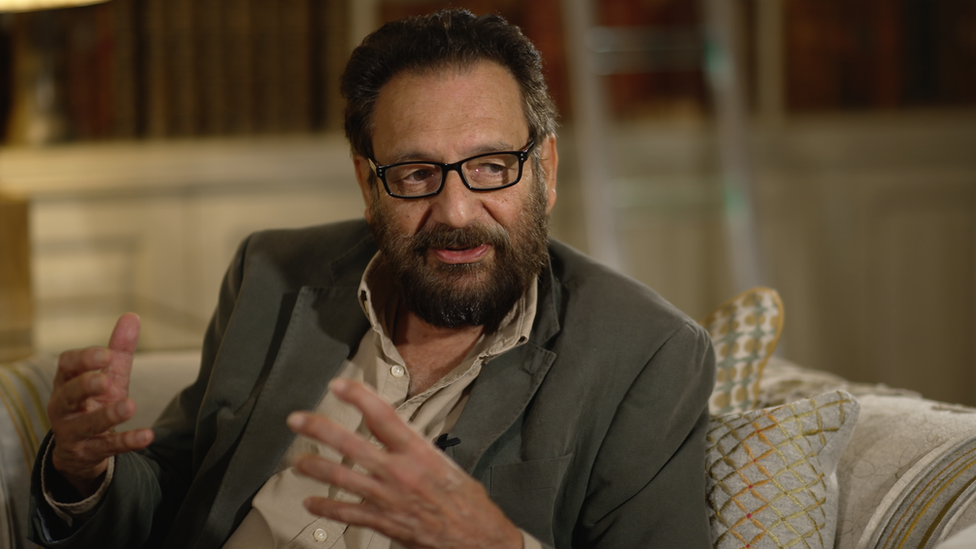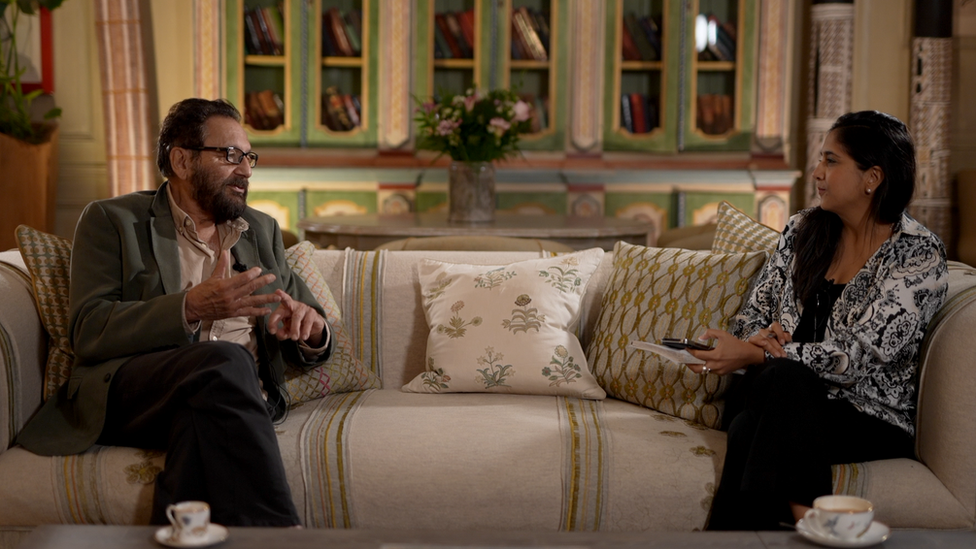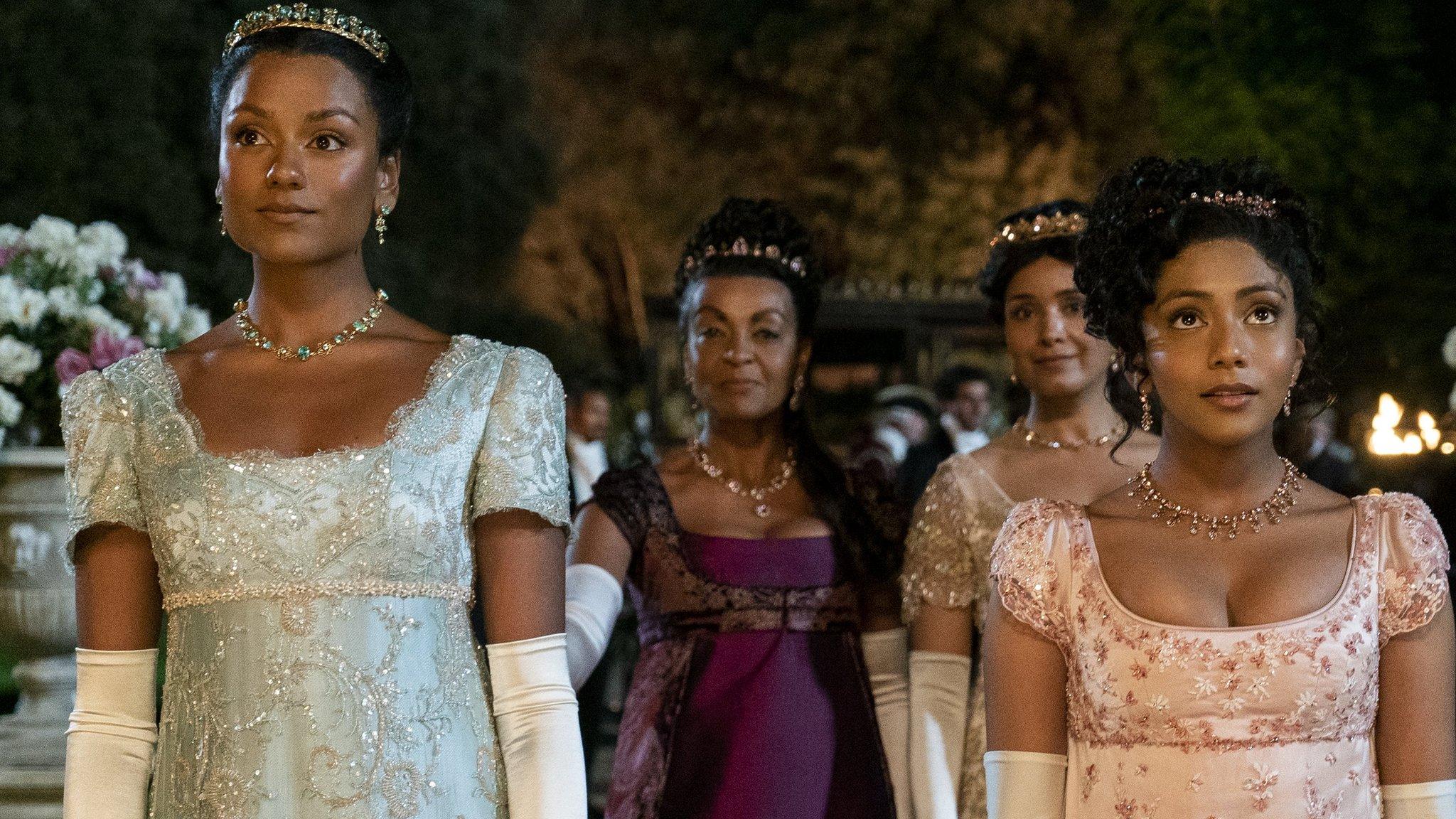Shekhar Kapur: Hollywood's diversity push is guilt driven
- Published

Shekhar Kapur says Hollywood's push to cast actors of colour comes from guilt
Director Shekhar Kapur has said Hollywood's push for more diverse casts has come from its guilt over "all the actors who are not getting work".
Kapur said the inclusion of ethnic minority actors in shows such as Netflix's Bridgerton is "a good thing" in terms of opportunity.
But, he said, it hides "a greater, more fundamental issue" of which stories are brought to the big screen.
He added the rise in protests had helped bring the issue to the fore.
"Hollywood should be telling stories of that culture, of the culture of the brown people, of the African-American people, of the black people, of Asians," he told BBC Newsnight's Sima Kotecha.
"But what's happening is they're still addicted to their, you know, the narrative is still their point of view."
Kapur is best known for his films Elizabeth and its sequel The Golden Age, both starring Cate Blanchett, and Bollywood films such as Mr India and Bandit Queen.
When asked about Hollywood's efforts to increase the diversity of actors in its films, Kapur described it as "a guilt trip" and woke.
"It's Hollywood feeling guilty about all the actors that are not getting work. And because there's a huge rise of protests," he said.
The live-action remake of The Little Mermaid released in cinemas in May starred black actress and singer Halle Bailey as main character Ariel, which caused controversy in some quarters.

Halle Bailey starred in Disney's live-action remake of The Little Mermaid earlier this year
Kapur joined the film industry in India as an actor, before going on to become a director.
His 1998 film Elizabeth, about the early years of the reign of Queen Elizabeth I, received widespread critical acclaim and several Oscar nominations.
Following its release, the director said many of the scripts he received went on to be "a huge success", including ones that he turned down.
Discussing international scripts he would receive, he said: "It's always an American going in, fixing the world's problem, going to Africa... and I said, 'Don't send me those scripts because it's not true'.

Kapur was educated in Delhi before moving to London for a career as a management consultant and chartered accountant
"For example, if you were going to make Gandhi the answer, the question was: 'Who's the American in it? Who's the American who goes and fixes all the problems? And who's the white man in the film?'
"And I would refuse to do those films. Absolutely. Because it's not patently not true."
Kapur was educated in Delhi before moving to London for a career as a management consultant and chartered accountant, but later turned to film directing, releasing his first film Masoom in 1983.
The 77-year-old, whose most recent film What's Love Got To Do With It? starred Shazad Latif and Lily James, suggested the film industry is contained within far too small a geographical area.
"I really believe that Hollywood's too concentrated together as like a group," he said. "I think it needs to be taken away and spread out.
"I would love to see it in Shanghai if you can. I would love to see it in Mumbai or in Tokyo or as it's happening in Seoul."
- Published22 March 2022

- Published25 May 2023
